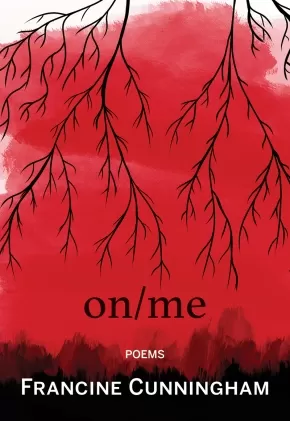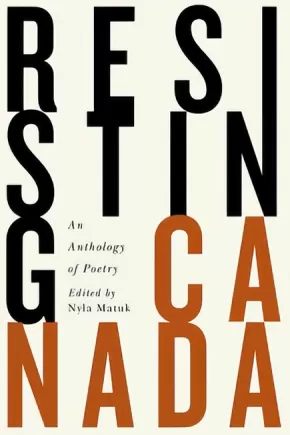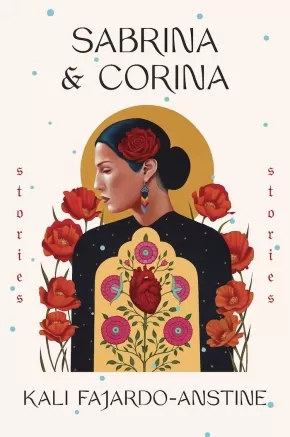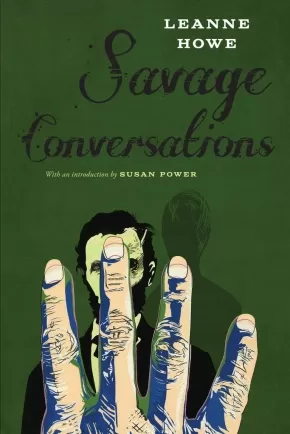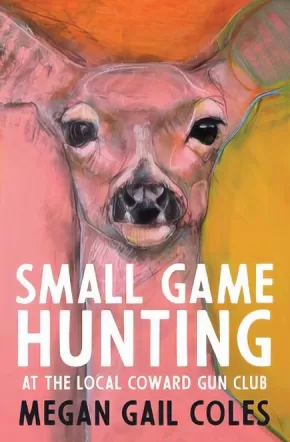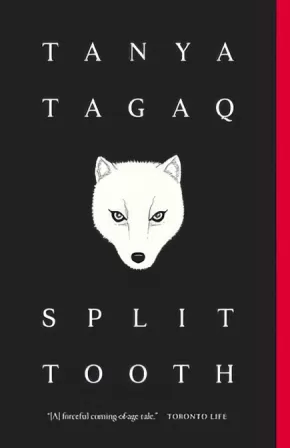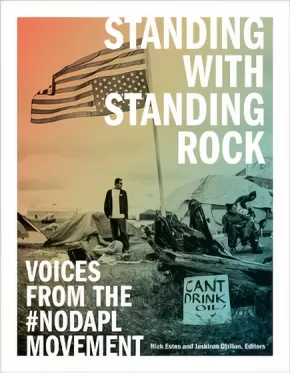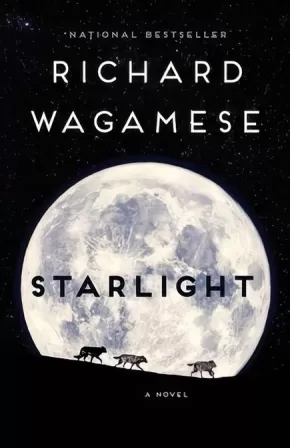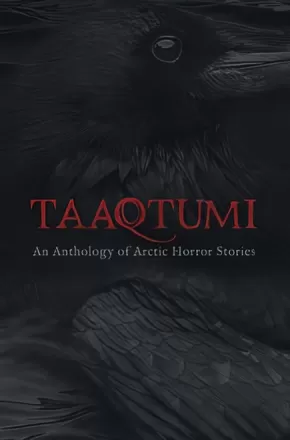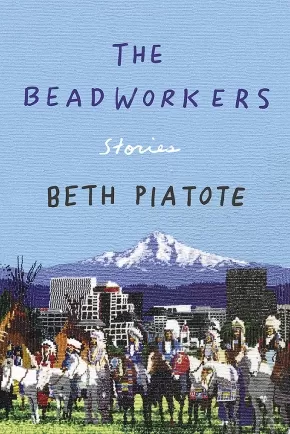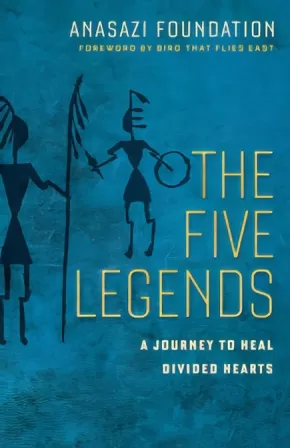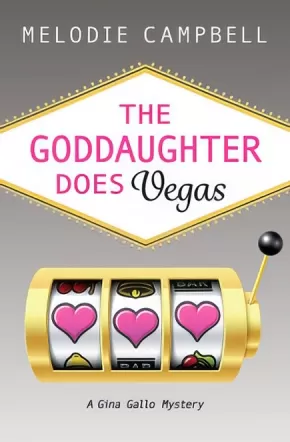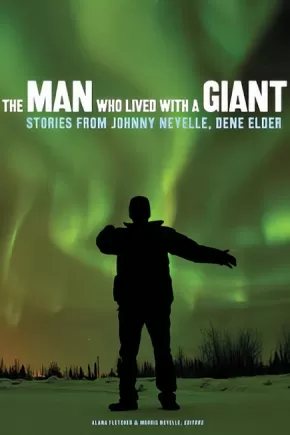Fiction
Synopsis:
Francine Cunningham lives with constant reminders that she doesn't fit the desired expectations of the world: she is a white-passing, city-raised Indigenous woman with mental illness who has lost her mother. In her debut poetry collection ON/ME, Cunningham explores, with keen attention and poise, what it means to be forced to exist within the margins. Cunningham does not hold back: she holds a lens to residential schools, intergenerational trauma, Indigenous Peoples forcibly sent to sanatoriums, systemic racism and mental illness, and translates these topics into lived experiences that are nuanced, emotional, funny and heartbreaking all at once. ON/ME is an encyclopedia of Cunningham, who shares some of her most sacred moments with the hope to spark a conversation that needs to be had.
Educator Information
Recommended in the Canadian Indigenous Books for Schools 2020/2021 resource list for grades 8 to 12 in the areas of English Language Arts and Social Studies.
Caution: mature subject matter.
Additional Information
96 pages | 8.00" x 5.50"
Synopsis:
This is the story of a Metis soldier fighting for Canada on the Western Front of Europe during World War I. Vancouver 1914: a young Indigenous man named Jonathon Woodrow, desperate to prove himself as a warrior, enlists to fight in the Canadian army. Relying on his experience in hunting and wilderness survival, Private Woodrow quickly becomes one of the most feared trench raiders in the 1st Canadian Division. But as the war stretches on, with no end to the fighting in sight, Woodrow begins to realize that he will never go home again.
A 2017 finalist for the Playwright Guild of Canada’s prestigious Carol Bolt Award for Playwrights, Redpatch focuses on how First Nations soldiers and communities contributed to Canada’s involvement in the First World War.
Educator Information
Recommended in the Canadian Indigenous Books for Schools 2019-2020 resource list for grades 10 to 12 for Drama, English Language Arts, and Social Studies.
Contains some use of strong language.
This work is a play including an eight-page graphic novel written by Sean Harris Oliver.
Additional Information
96 pages | 5.50" x 8.50"
Synopsis:
A poetic letter to Canada's politicians and leaders.
Resisting Canada gathers together poets for a conversation bigger than poetic trends. The book's organizing principle is Canada--the Canada that established residential schools; the Canada grappling with the Truth and Reconciliation Commission; the Canada that has been visible in its welcome of Syrian refugees, yet the not-always-tolerant place where the children of those refugees will grow up; the Canada eager to re-establish its global leadership on the environment while struggling to acknowledge Indigenous sovereignty on resource-rich land and enabling further colonization of that land. In the face of global conflicts due to climate change, scarcity, mass migrations, and the rise of xenophobic populisms, Canada still works with a surface understanding of its democratic values--both at their noblest and most deceptive.
The work included in Resisting Canada--by celebrated poets such as Lee Maracle, Jordan Abel, Billy-Ray Belcourt, Louise Bernice Halfe, Michael Prior, and Leanne Betasamosake Simpson--addresses, among other things, Indigenous agency, cultural belonging, environmental anxieties, and racial privilege. These poems ask us to judge and resist a statecraft that refuses to acknowledge past and present wrongs. Think of Resisting Canada as a poetic letter to Canada's politicians and leaders.
Additional Information
280 pages | 5.00" x 7.50"
Synopsis:
Latinas of Indigenous descent living in the American West take center stage in this haunting debut story collection—a powerful meditation on friendship, mothers and daughters, and the deep-rooted truths of our homelands.
“Here are stories that blaze like wildfires, with characters who made me laugh and broke my heart.”—Sandra Cisneros
Kali Fajardo-Anstine’s magnetic story collection breathes life into her Latina characters of indigenous ancestry and the land they inhabit in the American West. Against the remarkable backdrop of Denver, Colorado—a place that is as fierce as it is exquisite—these women navigate the land the way they navigate their lives: with caution, grace, and quiet force.
In “Sugar Babies,” ancestry and heritage are hidden inside the earth but tend to rise during land disputes. “Any Further West” follows a sex worker and her daughter as they leave their ancestral home in southern Colorado only to find a foreign and hostile land in California. In “Tomi,” a woman leaves prison and finds herself in a gentrified city that is a shadow of the one she remembers from her childhood. And in the title story, “Sabrina & Corina,” a Denver family falls into a cycle of violence against women, coming together only through ritual.
Sabrina & Corina is a moving narrative of unrelenting feminine power and an exploration of the universal experiences of abandonment, heritage, and an eternal sense of home.
Reviews
“Sabrina & Corina isn’t just good, it’s masterful storytelling. Fajardo-Anstine is a fearless writer: her women are strong and scarred witnesses of the violations of their homelands, their culture, their bodies; her plots turn and surprise, unerring and organic in their comprehensiveness; her characters break your heart, but you keep on going because you know you are in the hands of a master. Her stories move through the heart of darkness and illuminate it with the soul of truth.”—Julia Alvarez, author of How the García Girls Lost Their Accents
“[A] powerhouse debut . . . stylistically superb, with crisp dialogue and unforgettable characters, Sabrina & Corina introduces an impressive new talent to American letters.”—Rigoberto González, NBC News
“A terrific collection of stories—fiercely and beautifully made.” —Joy Williams
“Here are stories that blaze like wildfires, with characters who made me laugh and broke my heart, believable in everything they said and did. How tragic that American letters hasn’t met these women of the West before, women who were here before America was America. And how tragic that these working-class women haven’t seen themselves in the pages of American lit before. Thank you for honoring their lives, Kali. I welcome them and you.”—Sandra Cisneros
“In the eleven stories of Sabrina & Corina, Fajardo-Anstine writes a love letter to the Chicanas of her homeland—women as unbreakable as the mountains that run through Colorado and as resilient as the arid deserts that surround it. . . . In her fierce, bold stories, these women—and she—are seen, and heard, and made known; the collection is both a product of pain and a celebration of survival. . . . Like the woman on Sabrina & Corina’s cover, the hearts of these characters are exposed but intact. Fajardo-Anstine's heart is there on the page, too, beating with the blood of her ancestors.”—Bustle
“Sabrina & Corina summons a world we hardly recognize, but should. . . . Fajardo-Anstine can make a story smell of sickness. She can make legend of malediction. Conjuring the Sangre de Cristo Mountains, and unfurling the Denver skyline, there is no limit to what Fajardo-Anstine can manifest on paper and, subsequently, in our dreams. Yet, what is most admirable is the courage of her hand. She’s unafraid to delve into areas of race, feminism, queerness, and class. She interrogates whiteness, and its associations like passing and colorism, prodding unapologetically.”—Electric Literature
“In [Sabrina & Corina] we find a different narrative of the West. These are women who inhabit a space between the Indigenous and the Latinx; they are fierce [and] powerful in their own way.”—Brooklyn Rail
Additional Information
224 pages | 5.73" x 8.56"
Synopsis:
May 1875: Mary Todd Lincoln is addicted to opiates and tried in a Chicago court on charges of insanity. Entered into evidence is Ms. Lincoln’s claim that every night a Savage Indian enters her bedroom and slashes her face and scalp. She is swiftly committed to Bellevue Place Sanitarium. Her hauntings may be a reminder that in 1862, President Lincoln ordered the hanging of thirty-eight Dakotas in the largest mass execution in United States history. No one has ever linked the two events—until now. Savage Conversations is a daring account of a former first lady and the ghosts that tormented her for the contradictions and crimes on which this nation is founded.
Reviews
"In Savage Conversations, LeAnne Howe experiments with the form of verse drama to tell the history of the Dakhóta resistance to colonization and the mythos surrounding the Lincoln presidency of that same period. The setting is the asylum to which Mary Todd Lincoln was involuntarily committed ten years after the death of her husband. The characters are the First Lady, whose racism against Native Americans is well-documented, the “Savage Indian” she claims to see and be tortured by nightly, and a rope. The story is a reckoning of hauntings and unprosecuted crimes, an attempt at imagining some way to live with an unbearable history of human rights abuses and genocide." - Kathryn Nuernberger, Kenyon Review
“In May of 1875, Mary Todd Lincoln is confined to an insane asylum. There, she is haunted by a ‘Savage Indian’ who scalps her nightly and sews her eyes open. In Howe's telling, the specter haunting the widowed First Lady is one of the thirty-eight Dakota men, hanged in 1862 by her husband in the largest mass execution in American history. In reading this, I was blown away. Unmoored. Sent spiraling adrift on gusts of wind.” —Rachel S, Harvard Book Store
“Part fever dream, part extended meditation on madness, Howe’s Savage Conversations is a bracing commentary on the nature of guilt and grief.”—Historical Novel Society
“Savage Conversations takes place somewhere in between its sources, between sanity and madness, between then and now, between the living and the dead. It pushes past the limitations of textual sources for telling indigenous history and accounts of insanity.”—Barrelhouse Reviews
“LeAnne Howe’s words are to savor, contemplate, and horrify. Savage Conversations explodes with the stench of guilt and insanity that undergirds the American story, whispered through a personal, familial, national, and supernatural drama revelatory in every sense. Howe’s uncanny images will long haunt readers, just as the Dakota 38 linger in land and memory, both offering a testament to the violent entanglements of past and present.” —Philip J. Deloria
“Savage Conversations invokes our own racial conflict and probes America’s psyche, its struggle to reconcile its colonialist values, indeed its white supremacy, with its multi-ethnic cultures and populations. . . . Through the masterly dramatic management of Mrs. Lincoln’s disturbing and chilling obsessions, Howe shows that there is no escape from the yesterday’s paradigms of power without a true reckoning with the injustices that set the stage for our troubled social landscape.”—On the Seawall
“Howe’s book powerfully contributes to our understanding and re-thinking of a moment in time that we are still grappling with today. In the wake of recent movements to remove Confederate monuments as we work to present the truths of history, Howe’s book directs our attention to a violent event that has not been adequately acknowledged. Through experimental form, Howe refracts a moment of history that readers simply cannot forget, that they will inevitably carry with them long after reading the last page.” —The Carolina Quarterly
Educator Information
Experimental verse drama.
Additional Information
144 pages | 5.00" x 7.50"
Synopsis:
Meditations upon the decimation of the Kwantlen people of western Canada.
This powerful collection, all too relevant today, tells a story that needs to be told. The author writes, "This is the truth of what has happened to my people. The Kwantlen people used to number in the thousands but like all river tribes, eighty percent of our people were wiped out by smallpox and now there are only 200 of us. As a Kwantlen man, father, fisherman, poet and playwright I believe the gift of words was given to me so I can retell our stories?"
These poems tell the story of a Kwantlen man who has been given the gift of healing but is also is a heroin addict.
Educator Information
Recommended in the Canadian Indigenous Books for Schools 2020/2021 resource list for Grades 11 and 12 for English Language Arts.
Caution: Mature subject matter.
Additional Information
96 pages | 5.50" x 8.25"
Synopsis:
By turns savage, biting, funny, poetic, and heartbreaking, Megan Gail Coles’s debut novel rips into the inner lives of a wicked cast of characters, exposing class, gender, and racial tensions over the course of one Valentine’s Day in the dead of a winter storm.
Valentine’s Day, the longest day of the year.
A fierce blizzard is threatening to tear a strip off the city, while inside The Hazel restaurant a storm system of sex, betrayal, addiction, and hurt is breaking overhead. Iris, a young hostess, is forced to pull a double despite resolving to avoid the charming chef and his wealthy restaurateur wife. Just tables over, Damian, a hungover and self-loathing server, is trying to navigate a potential punch-up with a pair of lit customers who remain oblivious to the rising temperature in the dining room. Meanwhile Olive, a young woman far from her northern home, watches it all unfurl from the fast and frozen street.
Through rolling blackouts, we glimpse the truth behind the shroud of scathing lies and unrelenting abuse, and discover that resilience proves most enduring in the dead of this winter’s tale.
Additional Information
440 pages | 5.25" x 8.00" | Paperback
Synopsis:
From the internationally acclaimed Inuit throat singer who has dazzled and enthralled the world with music it had never heard before, a fierce, tender, heartbreaking story unlike anything you've ever read.
Fact can be as strange as fiction. It can also be as dark, as violent, as rapturous. In the end, there may be no difference between them.
A girl grows up in Nunavut in the 1970s. She knows joy, and friendship, and parents' love. She knows boredom, and listlessness, and bullying. She knows the tedium of the everyday world, and the raw, amoral power of the ice and sky, the seductive energy of the animal world. She knows the ravages of alcohol, and violence at the hands of those she should be able to trust. She sees the spirits that surround her, and the immense power that dwarfs all of us.
When she becomes pregnant, she must navigate all this.
Veering back and forth between the grittiest features of a small arctic town, the electrifying proximity of the world of animals, and ravishing world of myth, Tanya Tagaq explores a world where the distinctions between good and evil, animal and human, victim and transgressor, real and imagined lose their meaning, but the guiding power of love remains.
Haunting, brooding, exhilarating, and tender all at once, Tagaq moves effortlessly between fiction and memoir, myth and reality, poetry and prose, and conjures a world and a heroine readers will never forget.
Awards
- Winner of the 2019 Indigenous Voices Awards for Published Prose in English.
- Winner of the 2018 Alcuin Society Awards for Excellence in Book Design – Prose Fiction
Reviews
“Tagaq’s surreal meld of poetry and prose transmutes the Arctic’s boundless beauty, intensity, and desolation into a wrenching contemporary mythology.” –The New Yorker
“Though the protagonist’s coming-of-age story, generously and lovingly documented by Tagaq, is the anchor, Split Tooth is not a book that can be fully absorbed in one sitting. It’s possible to sink deeper and deeper into the narrative with each successive reading. Like a smirking teenager, Split Tooth blithely gives typical literary expectations the finger, daring us to see and experience narrative as chaotic, emotional, and deeply instinctive. And it succeeds.” –Quill and Quire
“Tanya’s book is one of the most incredible things I’ve ever read. It’s deeply profound, emotional and personal, and furthers her artistic experimentation and genius into a new realm. I love her even more after reading it, and I’m once again awed by her talent.” –Jesse Wente, CBC Broadcaster
"[A] forceful coming-of-age tale.” –Toronto Life magazine
Additional Information
|
Synopsis:
Dispatches of radical political engagement from people taking a stand against the Dakota Access Pipeline.
It is prophecy. A Black Snake will spread itself across the land, bringing destruction while uniting Indigenous nations. The Dakota Access Pipeline is the Black Snake, crossing the Missouri River north of the Standing Rock Indian Reservation. The oil pipeline united communities along its path—from North Dakota, South Dakota, Iowa, and Illinois—and galvanized a twenty-first-century Indigenous resistance movement marching under the banner Mni Wiconi—Water Is Life! Standing Rock youth issued a call, and millions around the world and thousands of Water Protectors from more than three hundred Native nations answered. Amid the movement to protect the land and the water that millions depend on for life, the Oceti Sakowin (the Dakota, Nakota, and Lakota people) reunited. A nation was reborn with renewed power to protect the environment and support Indigenous grassroots education and organizing. This book assembles the multitude of voices of writers, thinkers, artists, and activists from that movement.
Through poetry and prose, essays, photography, interviews, and polemical interventions, the contributors, including leaders of the Standing Rock movement, reflect on Indigenous history and politics and on the movement’s significance. Their work challenges our understanding of colonial history not simply as “lessons learned” but as essential guideposts for current and future activism.
Contributors: Dave Archambault II, Natalie Avalos, Vanessa Bowen, Alleen Brown, Kevin Bruyneel, Tomoki Mari Birkett, Troy Cochrane, Michelle L. Cook, Deborah Cowen, Andrew Curley, Martin Danyluk, Jaskiran Dhillon, Roxanne Dunbar-Ortiz, Liz Ellis, Nick Estes, Marcella Gilbert, Sandy Grande, Craig Howe, Elise Hunchuck, Michelle Latimer, Layli Long Soldier, David Uahikeaikalei‘ohu Maile, Jason Mancini, Sarah Sunshine Manning, Katie Mazer, Teresa Montoya, Chris Newell, The NYC Stands with Standing Rock Collective, Jeffrey Ostler, Will Parrish, Shiri Pasternak, endawnis Spears, Alice Speri, Anne Spice, Kim TallBear, Mark L. Tilsen, Edward Valandra, Joel Waters, Tyler Young.
Reviews
"As our songs and prayers echo across the prairie, we need the public to see that in standing up for our rights, we do so on behalf of the millions of Americans who will be affected by this pipeline."—David Archambault II, from the interior
"There is no alternative to water. There is no alternative to this Earth. This fight has become my life, and it’s not over. I think this is only the beginning for me, for all of us. Do you want a future for your children and grandchildren? If you want them to have a future then stand with Standing Rock because this is just the beginning of a revolution."—Zaysha Grinnell, from the interior
"We will put our best warriors in the front. We are the vanguard. We are the Hunkpapa Lakota. That means the horn of the buffalo. That’s who we are. We are protectors of our nation of Oceti Sakowin, the Seven Council Fires. Know who we are."—Phyllis Young
Additional Information
448 pages | 7.00" x 9.00"
Synopsis:
The final novel from Richard Wagamese, the bestselling and beloved author of Indian Horse and Medicine Walk, centres on an abused woman on the run who finds refuge on a farm owned by an Indigenous man with wounds of his own. A profoundly moving novel about the redemptive power of love, mercy, and compassion--and the land's ability to heal us.
Frank Starlight has long settled into a quiet life working his remote farm, but his contemplative existence comes to an abrupt end with the arrival of Emmy, who has committed a desperate act so she and her child can escape a harrowing life of violence. Starlight takes in Emmy and her daughter to help them get back on their feet, and this accidental family eventually grows into a real one. But Emmy's abusive ex isn't content to just let her go. He wants revenge and is determined to hunt her down.
Starlight was unfinished at the time of Richard Wagamese's death, yet every page radiates with his masterful storytelling, intense humanism, and insights that are as hard-earned as they are beautiful. With astonishing scenes set in the rugged backcountry of the B.C. Interior, and characters whose scars cut deep even as their journey toward healing and forgiveness lifts us, Starlight is a last gift to readers from a writer who believed in the power of stories to save us.
Additional Information
256 pages | 5.19" x 8.00"
Synopsis:
“Taaqtumi” is an Inuktitut word that means “in the dark”—and these spine-tingling horror stories by Northern writers show just how dangerous darkness can be. A family clinging to survival out on the tundra after a vicious zombie virus. A door that beckons, waiting to unleash the terror behind it. A post-apocalyptic community in the far North where things aren’t quite what they seem. These chilling tales from award-winning authors Richard Van Camp, Rachel and Sean Qitsualik-Tinsley, Aviaq Johnston, and others will thrill and entertain even the most seasoned horror fan.
Educator & Series Information
Includes stories from northern Indigenous authors.
This book is part of the Taaqtumi series.
Additional Information
260 pages | 6.00" x 9.00" | b&w illustrations
Synopsis:
Beth Piatote's luminous debut collection opens with a feast, grounding its stories in the landscapes and lifeworlds of the Native Northwest, exploring the inventive and unforgettable pattern of Native American life in the contemporary world.
Told with humor, subtlety, and beautiful spareness, the mixed-genre works of Beth Piatote's first collection find unifying themes in the strength of kinship, the pulse of longing, and the language of return.
A woman teaches her niece to make a pair of beaded earrings while ruminating on a fractured relationship. An eleven-year-old girl narrates the unfolding of the Fish Wars in the 1960s as her family is gradually drawn to the front lines of the conflict. In 1890, as tensions escalate at Wounded Knee, two young men at college—one French and the other Lakota—each contemplate a death in the family. In the final, haunting piece, a Nez Perce/Cayuse family is torn apart as they debate the fate of ancestral remains in a moving revision of the Greek tragedyAntigone.
Formally inventive, witty, and generous,The Beadworkers, a singular debut collection, draws on Indigenous aesthetics and forms to offer a powerful, sustaining vision of Native life in the Americas.
Reviews
"Beth Piatote has created a ritual of clarity, transformation, and wonder. Elegant and vivid, her book is alive, and it will make its readers see the world in a bright new light. I can't recommend it highly enough." —Luis Alberto Urrea, author of The House of Broken Angels
"Piatote is Nez Perce, and a Native American Studies professor at UC Berkeley. In this eloquent and elucidating debut story collection she brings the Native experience to life—from the long line of broken treaties and the tragic effect on Native tribes from coast to coast to contemporary repercussions from forced attendance at Indian boarding schools . . . Piatote draws the reader in with spare and perceptive language and resonate empathy for each struggling yet resilient character." —Booklist
"Piatote’s debut collection mixes poetry, verse, and prose to form an impressive reflection on the lives of modern Native Americans. Piatote, a Nez Perce enrolled with the Colville Confederated Tribes, fits much nuance and profundity into stories that often reflect on the ways in which contemporary mainstream American culture continues to erase the identities and traditions of indigenous groups . . . This beautiful collection announces Piatote as a writer to watch." —Publishers Weekly
"Hope and heartbreak abound in this debut collection set among Native Americans in the northwest . . . Piatote balances the emotional complexities of her characters' lives with the political complexity of their relationship with an America all too eager to look away. A poignant and challenging look at the way the past and present collide." —Kirkus Reviews
"The Beadworkers is beautifully crafted with indigenous storytelling techniques and narrative designs. Throughout, Beth Piatote renders Native American life in all its emotional complexity, profound tragedy, subversive humor, and transformative resilience. After the final drum beat, this book becomes an offering to ancestors, a feast of words, and a water song flowing across generations." —Craig Santos Perez, author of from unincorporated territory [lukao]
"The Beadworkers is an essential celebration of language, kinship, and the enduring power of story. In an exhilarating diversity of voices and literary forms, and with extraordinary heart and artistic precision, this book moves, teaches, and surprises. Beth Piatote is a writer to cherish and trust." ––David Chariandy, author of I've Been Meaning to Tell You
"Beth Piatote's incisive debut eschews the boundaries of genre so as to paint a polyphonic image of Indigenous life past and present.The Beadworkers reveals a writer who deeply understands the norms that govern Indigenous aesthetics, a writer who navigates the choppy waters of representation expertly, nuancing and complicating as she goes with an intellectual and narrative bravery that inspires. This is an important addition to a new wave of Indigenous writing in North America!" ––Billy-Ray Belcourt, author of NDN Coping Mechanisms andThis Wound is a World
“I loved it! It was like an adventure into Indian Thinking. Beth Piatote weaves characters, myths, emotions, and elements together like she is weaving a fine Plateau cornhusk bag. The stories engage your senses, emotions, and memories like a trip to the reservation. I knew I wanted to read this book again before I was even halfway through! I could feel the wind from the river, and I could smell the fragrance of freshly picked huckleberries on a warm summer day by reading her words and going to her places in the book. I could identify with some characters, and other familiar characters resounded with me to the point that it felt like this book was written just for me. I think a lot of people could get that feeling from reading this book." ––Marcus Amerman, traditional beadworker
Additional Information
208 pages | 5.50" x 8.25"
Synopsis:
Drawing on 30 years of helping families, this profound fable by the Anasazi Foundation illustrates the true anguish of conflict and explains how we can end war within ourselves, within our families, and even between nations.
Created in 1988 by renowned wilderness pioneers Larry D. Olsen and Ezekiel C. Sanchez (a Totonac Indian whose native name is Good Buffalo Eagle), the Anasazi Foundation invites young people, through a wilderness living experience, to effect a change of heart. For over thirty years, their teachings have helped families begin anew and walk in harmony in the wilderness of the world.
Inspired by their wisdom, this book tells the story of two brothers whose warring hearts threaten to destroy their lives and their community. Trapped in a canyon, the two brothers are rescued by a mysterious old man who perceives their need for peace. He offers to guide them home -- inviting them to open their hearts toward a New Beginning. When they agree, he teaches them the five legends of peace. And as they walk forward, they learn that we are free to create peace in our own lives--and how to do it. This discovery saves not only the brothers but ultimately their people. This poetic narrative offers us all a hopeful way out of the canyons of war, leaving behind the warring within.
This poetic and moving allegory is written for all ages. Its message is both timeless and desperately needed for our own time.
Reviews
“As the ANASAZI program grew, I put my efforts into developing a companion program to include parents and families in the powerful principles their children were learning on the trail. ANASAZI is not just our vision—it is the Creator's work. The Five Legends is based on our work to help heal divided hearts." —Sherrel Olsen, Co-Founder Mother of ANASAZI Foundation
“The Five Legends is a heartwarming book about peace and the power of family. I highly recommend it." —Steve Young, NFL Hall of Fame quarterback and ESPN commentator
“Having taught youth for over twenty years (some of whom were labeled ‘at-risk’), I can definitively say most youth are in need of a book like The Five Legends. This book is perfect for teenagers as it doesn’t come across as preachy but instead allows them to arrive at the principle on their own.” —Mark Rice, High School English Teacher
“A touching story of reconciliation, new beginnings, and shared humanity. Written from the heart for the heart.” —The Jenkins Family (Bruce, Shari and Aly), Friends of ANASAZI Foundation
“This book inspired me to be more understanding of others. It can be easy to find fault with our ‘brothers.’ The Creator is the path to love, harmony and forgiveness, and following that path allows us to live in the ‘WE’ world.” —Mike Tetmeyer, Retired Sr. Vice President of Marketing of Hy-Vee Food Stores
“The Five Legends is a life-changing fable about a mother’s unconditional love and how seeing people truthfully can change everything.” —Ganel-Lyn Condie, Speaker and Bestselling Author
Additional Information
120 pages | 5.50" x 8.44"
Synopsis:
Gina Gallo is a mob goddaughter who doesn't want to be one. She's left her loopy family behind to elope with Pete to Vegas. Except that eloping may be a mortal sin in an Italian family. Between that and some weird deliveries and suitors, Gina's nerves are frayed. Vegas is full of great acts, but one impersonation is real: Gina has a crime-committing double whose activities are making Gina front-page news. Gina has to track down this fiendish fraud before the police catch up with her. And, of course, cousin Nico is along for the ride.
Another madcap adventure for the loveable Gallo cousins that proves the rule "Why should things go right when they can go wrong?"
Educator & Series Information
This book is part of the Rapid Reads series. Rapid Reads are short novels and nonfiction books for young adults aged 16+ and adult readers. They are intended for a diverse audience, including ESL students, reluctant readers, adults who struggle with literacy and anyone who wants a high-interest quick read.
Additional Information
144 pages | 4.75" x 7.25"
Synopsis:
Our parents always taught us well. They told us to look on the good side of life and to accept what has to happen.
The Man Who Lived with a Giant presents traditional and personal stories told by Johnny Neyelle, a respected Dene storyteller and Elder from Déline, Northwest Territories. Johnny Neyelle used storytelling to teach Dene youth and others to understand and celebrate Dene traditions and identities. Johnny’s entertaining voice makes his stories accessible to readers young and old, and his wisdom reinforces the right way to live: in harmony with people and places. Storytelling forms the core of Dene knowledge-keeping. A volume dedicated to making Dene culture strong, The Man Who Lived with a Giant is a vital book for Dene readers, researchers working with Indigenous cultures and oral histories, and scholars preserving Elders’ stories. Even more, it is a book for the Dene people of today and tomorrow.
Additional Information
152 pages | 6.00" x 9.00"

